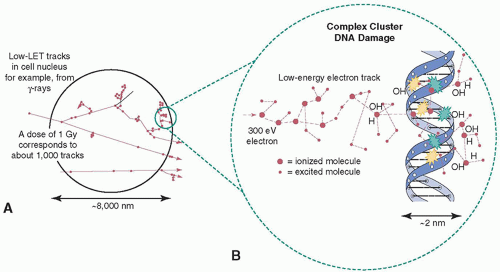Ph.D. in Radiation Biology: Introduction, Admission, Registration, Eligibility, Duration, Fees, Syllabus 2024

Introduction:
A Ph.D. in Radiation Biology is a specialized research-focused degree that investigates the effects of ionizing radiation on living organisms. It combines principles of biology, chemistry, physics, and medicine to explore cellular responses to radiation, mechanisms of DNA damage and repair, and the implications for cancer therapy. This intensive program trains students to become experts in understanding the complex interactions between radiation and biological systems, often with a view toward improving diagnostic and treatment strategies for cancer and other diseases. Scholars will engage with advanced scientific techniques in radiobiology, molecular biology, and biophysics to dissect and manipulate the cellular machinery affected by radiation. The program prepares graduates for leadership roles in academic research, clinical applications, and public health policy regarding radiation safety and medical treatments.
Admission Process:
- A completed application form with personal and educational details.
- A relevant Master's degree or equivalent in Biology, Medicine, or related fields.
- Official academic transcripts.
- Letters of recommendation.
- A statement of research interests or a research proposal.
- Entrance exams or interviews as required by the institution.
- Proof of English language proficiency (for non-native speakers).
Eligibility:
- Master’s degree in Biology, Biochemistry, Medical Sciences, or related areas.
- Strong academic record, particularly in relevant scientific subjects.
- Research experience in a laboratory setting.
- Publications in scientific journals can be advantageous.
- Relevant coursework in radiation physics or molecular biology.
Completion Time:
The typical timeframe for completing a Ph.D. in Radiation Biology is between 4 to 6 years. The journey commences with coursework that lays a theoretical foundation in radiological sciences. Progressing through the program, students engage in laboratory research, often requiring the development of novel experimental techniques. Time is also spent on data analysis, attending scientific conferences, and publishing research findings. The final stages involve writing and defending a dissertation. Completion time can be influenced by the research topic's complexity, the experimental design, and the publication process, which might require more in-depth investigation or additional experimentation.
Career Opportunities:
- Research scientist in medical and healthcare industries.
- Academic faculty positions at universities.
- Clinical research coordinator in oncology.
- Biomedical scientists in government agencies.
- Radiation safety officer in various organizations.
Syllabus:
- Fundamentals of Radiation Physics.
- Molecular Mechanisms of Radiation Biology.
- Carcinogenesis and Cancer Biology.
- DNA Damage Response and Repair.
- Techniques in Radiation Biology Research.
- Radiation Protection and Safety.
Internship Opportunities:
- Clinical rotations in hospital oncology departments.
- Research internships at cancer research institutes.
- Industrial placements in biotech or pharmaceutical companies.
- Governmental public health agencies.
- International internships facilitated by scientific collaborations.
Scholarship and Grants:
- Institutional scholarships for doctoral students.
- Fellowships from national health and science funding bodies.
- Grants from cancer research organizations.
- International fellowships for study abroad or collaborative research.
- Funding from industry partners for specific research projects.
FAQs:
What makes radiation biology an important field of study?
It's critical for understanding and improving radiation-based treatments for diseases like cancer.
Are there opportunities for interdisciplinary research?
Yes, radiation biology is inherently interdisciplinary, with opportunities to work with physicists, chemists, and clinicians.
What technical skills will I learn?
Skills range from radiation safety and dosimetry to molecular biology techniques and bioinformatics.
Is teaching experience required during the Ph.D.?
Some programs may include teaching assistantships as part of the training.
Can the research conducted lead to clinical applications?
Yes, research in radiation biology is often directly applicable to developing new therapies and diagnostic tools.
